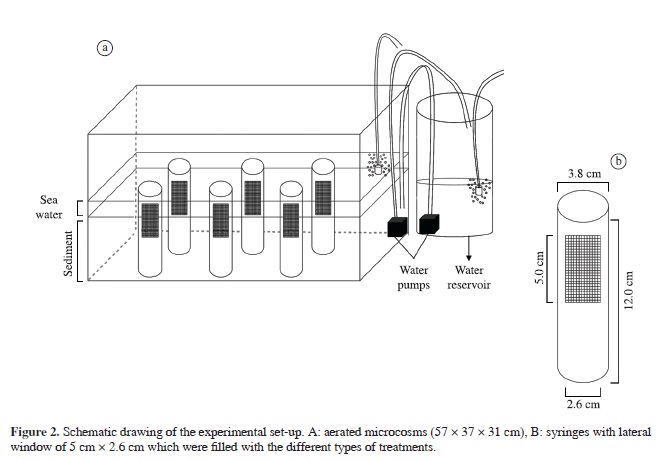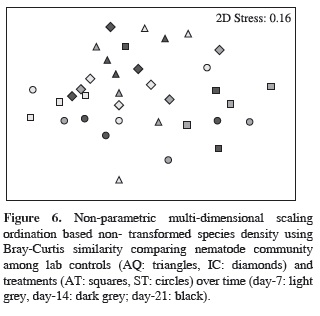The role of a dominant macrobenthic polychaete, Scolelepis squamata, in the colonisation of defaunated tropical sediments by sandy-beach nematodes was investigated and compared with a previous colonisation experiment carried out on a temperate sandy beach. Experimental cylinders, equipped with lateral windows allowing infaunal colonisation, were filled with defaunated sediment containing two treatments, with and without S. squamata. These cylinders were inserted into microcosms containing sediment with indigenous meiofauna collected from the field. The treatments were incubated in the laboratory at ambient temperature and salinity for 7, 14 and 21 days. The nematode assemblages in both treatments did not differ in composition between treatments and from the natural assemblages, suggesting that all the species were equally able to colonise the experimental cores. The presence of the polychaete did not affect the development of the nematode community composition, in contrast to the results from a previous temperate-beach experiment. However, our results did not indicate whether the difference in results was caused by the different behaviour of the polychaete specimens, or by the different composition and response of the present nematode community.
meiofauna; Scolelepis squamata; Fazenda Beach; microcosm experiment; biological interactions










